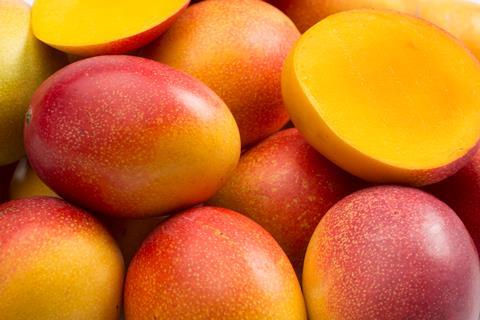Access to new varieties is seen as catalyst for growth in the South African mango export sector
The long-term future of the South African mango export sector seems much brighter after a deal was announced to boost the introduction of new varieties in the country.

Mangoes is one category of the South African subtropical export sector which has shown very little export growth since 2000.
Based on three main varieties and a condensed production and export season, there has been little incentive for growers to increase their plantings.
The recently announced acquisition by international breeder Sun World of the Biogold Group, a major South Africa-based global fruit variety rights manager trading as Citrogold in South Africa, is seen as one of the most significant developments in the country’s mango sector for more than two decades.
The Biogold deal means that some of the most promising international varieties, plus those emerging from the local breeding programmes, will now be available to the industry.
“The cultivars from the ARC breeding programme initiated by the South African Mango Growers’ Association (SAMGA) will also in future be commercialised by Biogold,” said Derek Donkin of Subtrop, the umbrella industry body of the South African subtropical industry. “The involvement of Sun World International is certainly a boost for the variety spectrum in the industry.”
With Tommy Atkins being by far the leading variety in the past, it dominated sales to such an extent that returns to growers suffered, he explained.
“It is not surprising that the processing sector became the most important part of the industry.”
Viresh Ramburan, vice-president global licensing citrus and subtropicals at BioGold, said that as the group learned more about the category, it saw the gaps and became very interested in the opportunity for innovation.
“Biogold decided to lean into mangoes, and we’ve deployed substantial resources against that effort,” Ramburan outlined. ”In North America, mangoes are still considered an exotic, but in so many countries, they’re consumed daily, so the global opportunity is vast.”
The group acknowledged that the mango industry in South Africa had been somewhat stagnant over the last decade, with many orchards removed and replanted with citrus and sometimes avocados.
“That said, Biogold has seen a resurgence in mangoes in the post-Covid years and the past season yielded excellent results for South African mangoes – especially since the El Niño that Peru experienced reduced that country’s mango crop by a significant margin of 30 per cent,” it stated.
With so many exciting new mango varieties becoming available from its breeding partners in South Africa and abroad, there’s a renewed energy and optimism around mangoes in South Africa.
These new varietals have great colour and a delicious taste, Biogold said.
“The combination of these with Sun World’s early varieties like D34, Lady Jane and Kankun, offers South African growers a mango portfolio with high-quality traits both in flavour profile and appearance,” it noted.
Many are also suitable for growing in early-production areas, opening an ”incredibly lucrative” early-production window that existing and new customers are already engaging around.
“These new varieties have the potential to change the trajectory of the South African mango industry in the coming decade,” Ramburan explained.
“We are bullish about mangoes and the portfolio we now share with Sun World.
”We look forward to engaging with our current breeders, as well as new breeding programmes, to offer the marketplace superior fruit when and where they want it,” he added.



